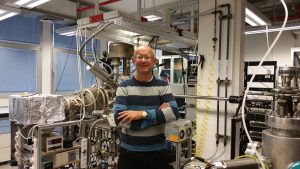
Prof Alon Hoffman is a full professor at the Schulich faculty of Chemistry at the Technion and also holds the Joseph Szydlowsky Chair in Science. Alon completed his D.Sc. in 1987 at the Technion investigating adsorption processes on single crystal metal alloy surfaces by electron spectroscopy. During the 2012-2016 he was Dean of the Schulich Faculty of Chemistry. Today Alon is serving as Deputy Senior Vice president of the Technion. His research effort spans from basic to fundamental research in surface science and thin films with more than 300 publication. During the last thirty years Prof Hoffman’ research has been related to different aspects associated to the chemical, physical and electronic properties of diverse carbon surfaces such as graphite, diamond and amorphous carbon. In particular he has investigated very extensively the interaction of hydrogen, oxygen, nitrogen and water with single and poly crystalline diamond surfaces by high resolution electron energy loss spectroscopy and various electron spectroscopic methods such as XPS, UPS and AES. He has also investigated the different processes involved in the formation – nucleation and growth- of polycrystalline diamond films by chemical vapor deposition onto non-diamond substrates.
.
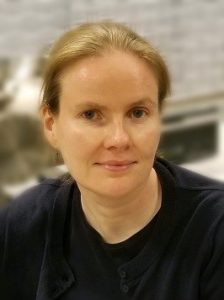
Amy V. Walker is the Interim Head and Professor of Materials Science and Engineering at the University of Texas at Dallas. She is also an Affiliate Professor of Chemistry (2012-present) and Electrical Engineering (2016-present). Amy received her BA(Hons) in Natural Sciences (Experimental and Theoretical Physics) in 1995 and her PhD in Chemistry in 1998 from the University of Cambridge. She then moved to the USA to become a postdoctoral scholar in the Chemistry department of the University of Pittsburgh. In 2000 she moved as a postdoctoral scholar to Pennsylvania State University. Subsequently in 2002 she joined the Department of Chemistry, Washington University in St. Louis as an assistant professor and inaugural member of the Center for Materials Innovation. In 2009 she joined the Department of Materials Science and Engineering, University of Texas at Dallas as an associate professor and was promoted to professor in 2015. Her research concerns the development of simple, robust methods for constructing complex two- and three- dimensional structures by manipulating interfacial chemistry, as well as surface/imaging analytical techniques for probing the structures produced. The primary techniques employed in her research group are TOF SIMS, XPS, and Raman spectroscopy, and she has an active program in the development of TOF SIMS and XPS methodology and data analysis. To date she has published over 90 articles in refereed journals and edited books, and given over 90 invited presentations at international and national conferences, companies, national laboratories and universities. For this work she has been awarded a 2003 Ralph E. Powe Junior Faculty Award, a DuPont Young Professor Grant (2006-2009), a 2008 ACS PROGRESS/Dreyfus Lectureship and a Fellow of the AVS (2015). She was elected 2020 AVS President in October 2018, and is the President-Elect in 2019. Amy has also held a number of other positions in the AVS including the Chair of the AVS Trustees (AVS Awards Committee) (2018), an AVS Trustee (2016-2018, elected 2015), the Program Chair of the AVS International Symposium and Exhibition (2017; Vice Program Chair in 2016), and director of the AVS (2013-2014, elected 2012).
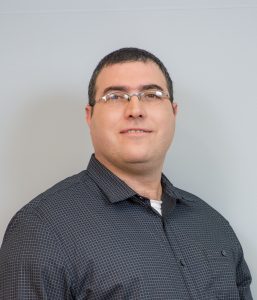
Asaf Albo received the B.Sc. degrees (Hons.) in physics and materials engineering from the Technion, Israel Institute of the Technology in 2002, the M.Sc. degree from the Department of Materials Engineering, Technion, Israel Institute of the Technology, in 2005, and the Ph.D. degree from the Department of Electrical Engineering, Technion, Israel Institute of the Technology, in 2011. He was a Research and Development Senior Physicist in the semiconductor industry for four years (2010-2013). He was also a Research Fellow/Associate with the Research Laboratory of Electronics, Massachusetts Institute of Technology for another four years (2013-2017), where he studied the carrier dynamics in terahertz QCLs and developed novel design strategies for high-performance intersubband lasers for terahertz light emission. He is also a Materials and Devices Researcher that specializes in semiconductors, quantum-structures and their optoelectronic devices. Dr. Albo has joined the Faculty of Engineering at Bar-Ilan University, Israel at 2017.
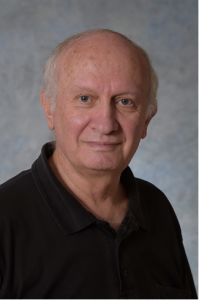
Professor Avraham Gover is a leading expert in Quantum Electronics and specifically in the field of free electron interaction with light and matter and Free Electron Lasers. He is a faculty member in the Physical Electronics Department of Tel Aviv University. He has received his BS and MS in Physics from Tel-Aviv University and his Ph.D. in Applied Physics from CALTECH U.S.A..
Gover is a Fellow of the IEEE and a Fellow of the American Physical Society. In 2005, he was awarded the international FEL prize “in recognition for his outstanding contributions to Free Electron Laser science and technology”.

Assoc. Prof. Dan Mordehai received his Ph.D. degree from the Physics department, at Tel Aviv University, Isreal in 2007. Before joining the Department of Mechanical Engineering in 2011, he spent a postdoctoral time at CEA (France) and at the Department of Materials Engineering at the Technion. The research of his group focuses on multiscale materials modeling and developing constitutive models for material at the nanoscale, such as nanoparticles, nanowires, 2D material, etc. Recipient of the Henry Taub prize for academic excellence (Israel 2019).
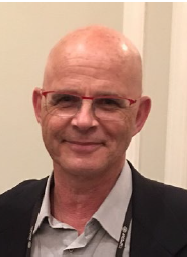
Prof. H. Daniel Wagner (PhD, Hebrew University of Jerusalem, 1982) was a postdoctoral associate at Cornell University (1982-1985). At the Weizmann Institute since 1985. Holds the Livio Norzi Professorial Chair in Materials Science. Current interests: micromechanics of composites, nanotubes, graphene, nanocomposites, biological composite materials. The author of about 285 papers and several book chapters. Elected Chairman of the Gordon Research Conference on Composites (California, 2000). Recipient of the Gutwirth Prize (Israel, 2010), the Christoffel Plantin Award in Science (Belgium, 2014), the Landau Prize in Arts and Science (Israel, 2014), the Medal of Excellence in Composites (U. of Delaware, USA, 2016), and the American Society for Composites DEStech Award (2017).
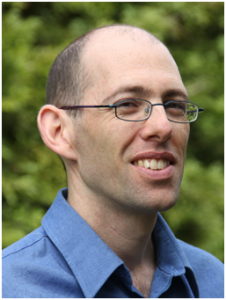
Elad Gross received his B.Sc. with excellence from the Hebrew University in 2003 and then completed his M.Sc. and Ph.D. with Prof. Micha Asscher (2003-2010). Following a postdoctoral fellowship at UC Berkeley with Prof. Gabor A. Somorjai (2011-2014), he joined the Hebrew University as a faculty member. Elad established his research group that focuses on utilizing innovative IR nano-spectroscopy capabilities to elucidate the fundamental aspects that direct the reactivity of catalytic nanoparticles. His group developed a new research path, in which catalytic processes are mapped by conducting Infrared nano-spectroscopy measurements while using specifically-designed N-heterocyclic carbenes as molecular probes. Using this approach, he was able to detect the influence of various surface sites and reaction conditions on the reactivity of metallic nanoparticles (Nature 2017). Elad was awarded the ERC Starting Grant(2019) to develop a one-of-a-kind IR nanospectroscopy setup with unique capabilities for high spatial resolution mapping of catalytic processes under realistic reaction conditions. Overall, the spectroscopic approach that he developed provided important insights and understanding of the basic elements that direct the reactivity of industrially-relevant heterogeneous catalysts.
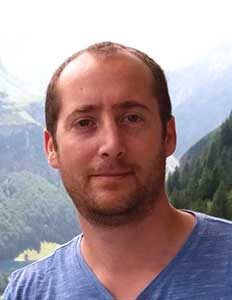
Elad Koren received his Ph.D. from the Faculty of Engineering, Department of Physical Electronics at Tel Aviv University in 2012. He then relocated to the Physics of Nanoscale Systems group of the Science & Technology Department at IBM Research Zurich, Switzerland. Since October 2017 he is heading the Laboratory for Nanoscale Electronic Materials and Devices in the Department of Materials Science and Engineering at the Technion – Israel Institute of Technology.
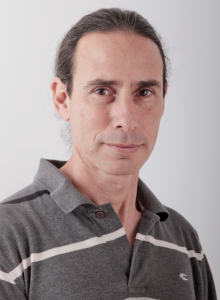
Gil Markovich – Professor and the Department of Physical Chemistry, School Chemistry, Tel Aviv University. Heads the colloidal inorganic nanomaterials lab and focuses on studies of nanoscale chirality and optical activity, and metal nanowire films.
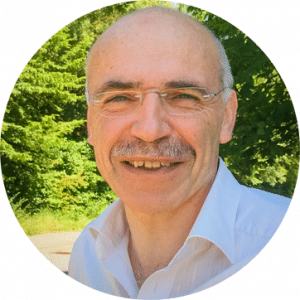
Prof. Dr. Guido Schmitz has been trained as Materials Physicist at the University of Göttingen in Germany. After important career steps at UCLA, USA and Univ. of Münster, Germany, he is presently a director at the Institute of Materials Science in Stuttgart, Germany. He devoted his major scientific activities to the high resolution analysis of solid state reactions.
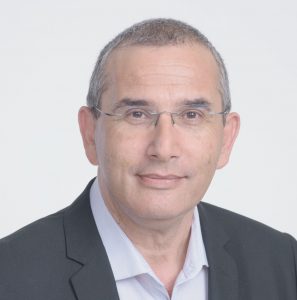
Prof. Lior Klein graduated from the physics department at Tel-Aviv University and following a postdoctoral study at Stanford University he joined as a faculty the Department of Physics at Bar-Ilan University. Prof. Klein serves as a member of the scientific committee of the Institute of Nanotechnology of Bar-Ilan University, he heads the Spintronics and Nanomagnetism Laboratory, and he is the chair of the physics department.
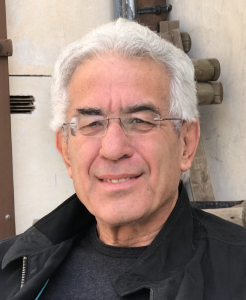
Michael Mond – B.Sc – Tel Aviv University (1972), M.Sc – Tel-Aviv University (1975), Ph.D – University of Iowa (1979), Research Associate – Courant Institute (1979-1982), Staff member – Los Alamos National Laboratory (1982-1983), Faculty member – Ben-Gurion University of the Negev (1983-present).
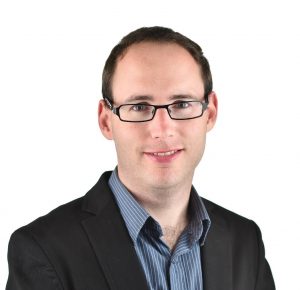
Nadav Amdursky – PhD in Biotechnology and Electrical Engineering from Tel Aviv University (2012). First post-doc in Materials & Interfaces at Weizmann Institute of Science. Second post-doc in Materials & Bioengineering at Imperial College London. From 2016 I am an Assistant Professor of the Schulich Faculty of Chemistry in the Technion.

Dr. Nurit Avraham received her PhD, in physics, from the Weizmann Institute of Science. Nurit is a staff scientist at WASP ( Weizmann Institute’s Atomic Scale Physics ) Lab, in the condensed matter physics department, at the Weizmann institute of science. My current research focuses on the study of topological states of matter by combining growth, fabrication and scanning tunneling microscopy and spectroscopy.
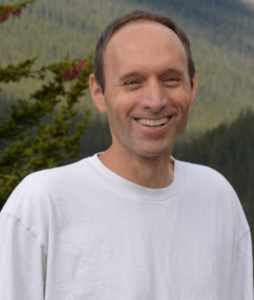
Ramy Doron graduated from the Hebrew University of Jerusalem. Following a postdoctoral research in solar physics at the Naval Research Laboratory, he joined the Plasma Laboratory of the Weizmann Institute of Science where he studies fundamental processes of Plasma – magnetic-field interaction and develops spectroscopic diagnostics for inertial confinement fusion plasma.
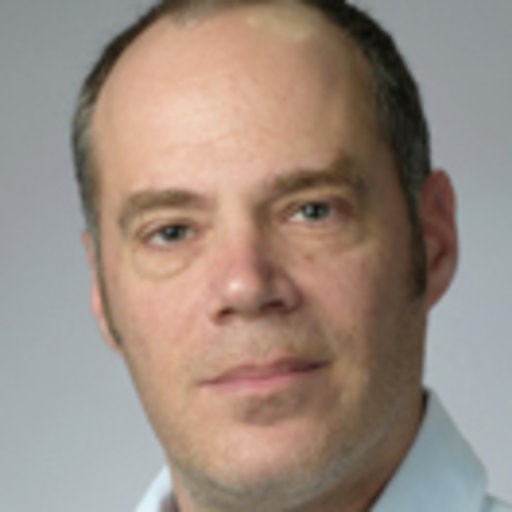
Prof. Gelbstein, serves as the Head of Department of Materials Engineering, Ben-Gurion University of the Negev, Beer-Sheva, Israel, In which the Israeli TE materials development group, is composed of ~20 B.Sc, M.Sc and Ph.D research students, post.doc fellows and technicians, and fully dedicated on achieving the entire supply chain starting from basic science activities on development the next novel TE materials to the development of highly efficient TE prototype converters. In the recent years, the research activity in the lab. was granted by the Israeli Ministry of Science in terms of the bi-national China-Israel Foundation and the Israel Science Foundation (ISF) individual and equipment research grants; by the United States – Israel Binational Science Foundation (BSF); by the Adelis Foundation grant for BGU-Technion Collaborative Research in Renewable Energies; by the Israeli Ministry of Defence (IDF-MAFAT); and by the European Committee in terms of the 6th and 7th Framework Programs (FP6, FP7, H.2020). Most of these activities were focused on development of various classes of TE materials including silicides, half-Heuslers and IV-VI (namely, PbTe, GeTe, SnTe) alloys, obtaining high ZTs of up to ~2.2, suitable for operation under different temperature conditions, while other activities were focused on development of TE systems including hybrid photovoltaic-thermoelectric systems.
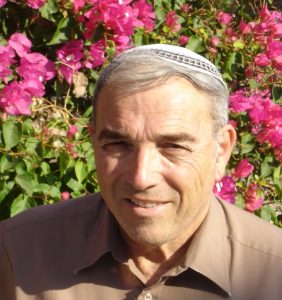
Dr. Yehoshua Kalisky, is a senior scientist and laser physicist at NRCN.
Dr. Kalisky is a SPIE Fellow (2007), and an author of two books as well as over 240 scientific publications, 5 international patents, and numerous conference invited presentations.


